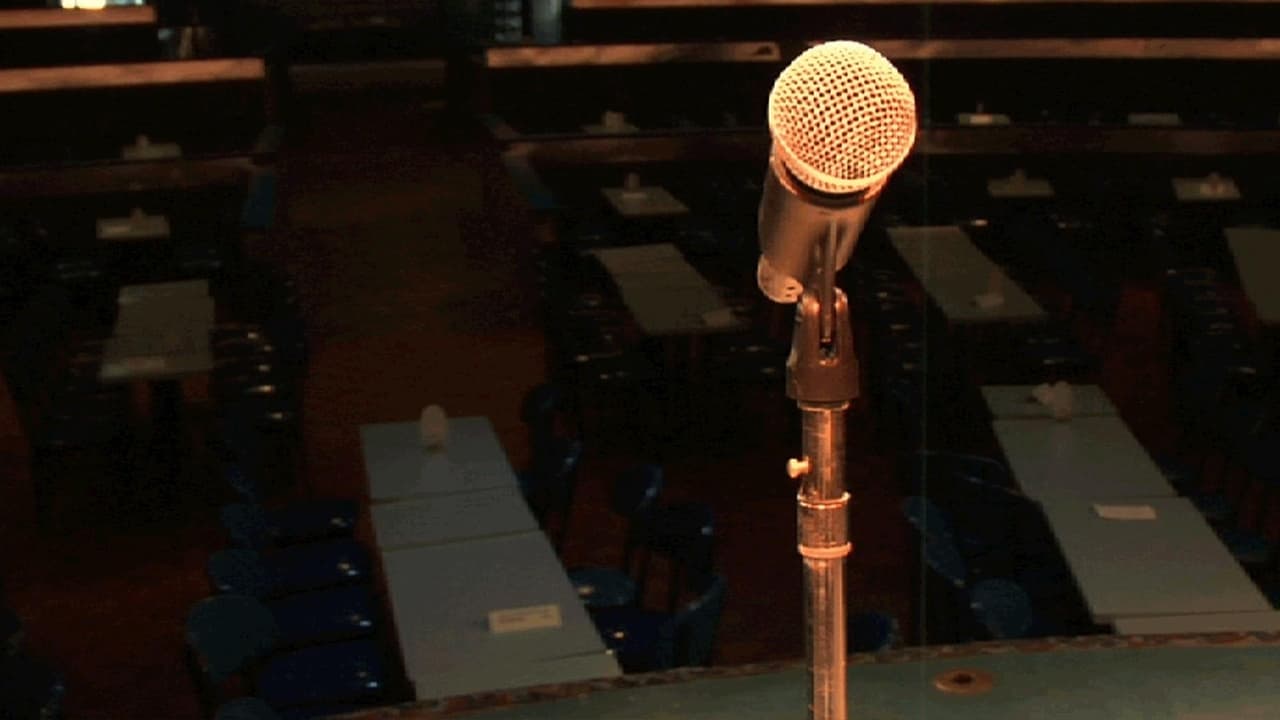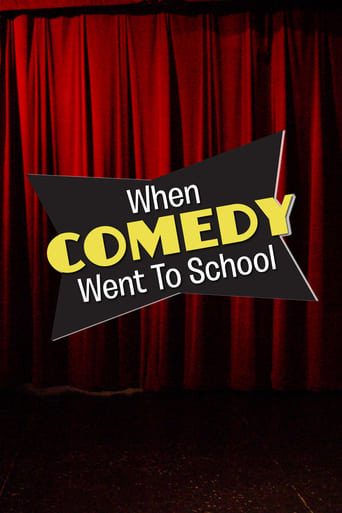



Don't listen to the negative reviews
This movie feels like it was made purely to piss off people who want good shows
View MoreThere's no way I can possibly love it entirely but I just think its ridiculously bad, but enjoyable at the same time.
View MoreBy the time the dramatic fireworks start popping off, each one feels earned.
View MoreIf you recognize the title of this review as a slight modification of the classic Henny Youngman one-liner, then you are sure to enjoy "When Comedy Went to School", a new documentary that examines the roots of American stand-up comedy and the role of one geographic area in particular.The geographic area I refer to is the Catskill Mountains, located in upstate New York. Developed as a summer getaway from the crowds and humidity of the New York Metro area, resorts sprung up to cater to these usually urban, usually Jewish vacationers. The Catskills by day provided ample opportunities for swimming, fishing, hiking, sporting and the like. But it was at night that the resorts really came to life, via massive quantities of food in the dining halls and the live entertainment provided as part of the dining experience. The easiest entertainment to provide was, luckily for us, comedy.The death of vaudeville and the crackdown on burlesque led to a plethora of entertainers eager to perform for a large audience. The Catskill resorts provided a stage for veteran performers to ply their trade for an appreciative audience and for newcomers to build the foundation of a successful career. In a world where comedy is performed in chain-clubs, college auditoriums, coffee shops and on cable television, it's easy to forget that not too long ago there weren't many places for a comedian to be "bad" and learn his craft. The Catskill resorts were, in essence, this country's mid-century comedy school.And what a school it was, with such "students" as Sid Caesar, Jerry Stiller, Jackie Mason, Jerry Lewis, Mort Sahl et al. They all spent time on a Catskill resort stage. Comedian Robert Klein introduces great archival photographs and film footage that take us back to a time and place that really no longer exists. Interviews with the aforementioned students (and others) provide us with an inside look at how the Catskills came to be the place to go for comedy, and how the Catskills came to not be the place to go for comedy. (Three simple reasons – television, the sixties, and Woodstock )Clocking in at a quick 76 minutes, "When Comedy Went to School" is a quick refresher course on the fundamentals of American comedy and an examination of the prevalence of Judaism as the starting point for the majority of comedians of this era. It's a rare course in which I would have gladly spent more time.www.worstshowontheweb.com
View MoreDespite its considerable nostalgic charm, When Comedy Went to School (Melvin Akkaya, Ron Frank) seems a wasted opportunity. It makes two points well. One is what the Catskills resorts meant to the new Jewish immigrant community as an escape from their European suffering and the strictures of tenement life. The other is that the generation of comics that shaped our comic world got their basic training and devotion to comedy at those resorts. The repetition of that latter shows the film's wasted opportunity. It often seems to be running on the spot (which might work for a tummler but not for a documentary).The film drops a nod at why Jews were attracted to and adept at standup comedy and how the genre later drew African Americans in the same way. But these questions have been so much more fully explored elsewhere (in critical writing and in the documentary The Jews Who Invented Hollywood) that this film's material seems perfunctory. Mixing the sentimental Catskills reminiscence with the nature of Jewish comedy makes the film neither gefilte fish nor overboiled fowl.There are a few embarrassments. Why drag in the ubiquitous Larry King? Why run Bob Hope as an instance of "topical humour"? Why let emcee Robert Klein get away with calling the Seinfeld show "parodies"? All in all, this film collected good material but failed to find a fertile focus. For more see www.yacowar.blogspot.com.
View More